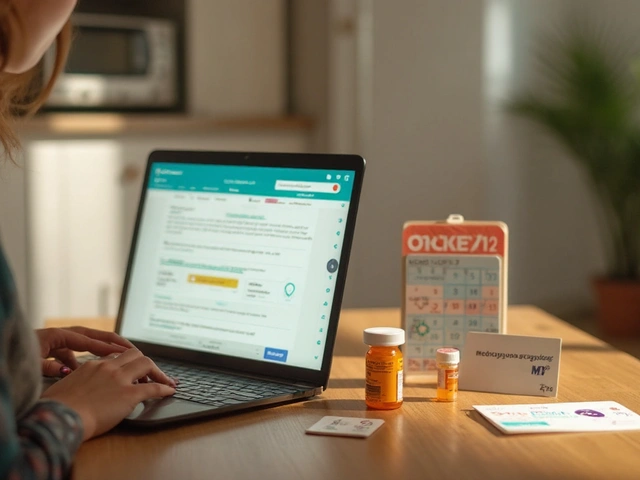Risperidone Alternatives – What Works Better for You?
If you or someone you know takes Risperidone and worries about side effects, you’re not alone. Many people look for other options that fit their lifestyle and health needs. Below we break down the most common medication swaps and some non‑drug ideas that can help keep symptoms under control.
Top Medication Alternatives
Below are the antipsychotics doctors often suggest instead of Risperidone. Each has its own set of benefits and downsides, so talk with your prescriber before making any change.
- Aripiprazole (Abilify) – Works as a partial dopamine blocker, which can mean fewer weight‑gain issues. Some people feel less sleepy, but it may cause restlessness.
- Quetiapine (Seroquel) – Good for people who also have anxiety or sleep trouble. It can make you drowsy, which some find helpful at night but not during the day.
- Olanzapine (Zyprexa) – Often very effective for severe symptoms, but it is known for causing weight gain and higher blood sugar. Regular check‑ups are a must.
- Ziprasidone (Geodon) – Less likely to cause weight gain, but you need to take it with food and it can affect your heart rhythm, so a baseline ECG is recommended.
- Paliperidone (Invega) – A close relative of Risperidone that lasts longer in the body. It may be easier to stay on a steady dose, but it can still cause prolactin rise.
When switching, doctors usually taper the old drug slowly to avoid withdrawal or a sudden flare‑up. Keep a symptom diary – note mood changes, sleep, appetite, and any new side effects. This record helps the doctor fine‑tune the new dose.
Non‑Drug Strategies That Make a Difference
Medication is only one piece of the puzzle. Adding lifestyle habits can lower the dose you need or even let you stop meds under careful supervision.
- Cognitive‑behavioral therapy (CBT) – Teaches coping skills for hallucinations or delusional thoughts. Many studies show CBT can reduce symptom severity.
- Regular exercise – Even a 30‑minute walk three times a week improves mood and reduces weight gain from antipsychotics.
- Balanced diet – Cutting processed sugar and adding omega‑3 rich foods (like fish or walnuts) supports brain health.
- Sleep hygiene – Keep a consistent bedtime, limit screens before bed, and create a dark, quiet room. Good sleep reduces irritability and psychotic spikes.
- Social support – Joining a peer group or staying connected with family gives structure and reduces isolation.
Start with one habit that feels doable. If you add too many changes at once, you might feel overwhelmed and give up.
Bottom line: there are several antipsychotic options that may suit you better than Risperidone, and adding simple daily habits can boost any medication’s effect. Always discuss any switch or new routine with your healthcare provider to keep the plan safe and effective.
Navigating the world of mental health medication can often feel overwhelming, especially when it comes to finding alternatives to Risperidone. In 2025, we've seen some promising options for those seeking different paths. This article breaks down these alternatives, exploring their pros, cons, and unique aspects. Whether it's a patch, a pill, or an injectable, knowing what each option offers can help people and their loved ones make informed choices.
Continue reading





